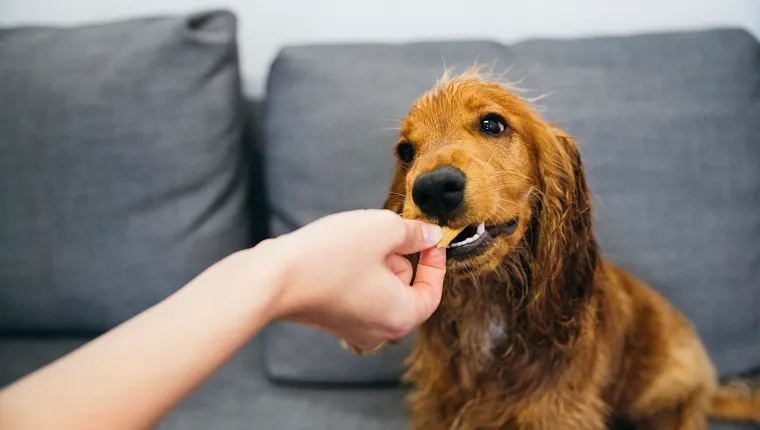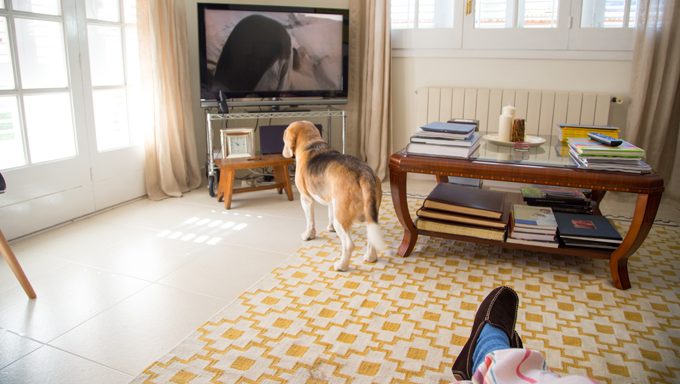Some dogs nip when they feel startled. While it may not be your dog’s fault that they bite in response to surprises, it is a behavior that you probably want to stop.
The startle reflex is instinctive in animals, and it’s not uncommon for a sleeping dog to bite when awakened by petting, kissing, or other physical interactions. Remember, this reaction is reflexive — not aggressive; it’s important not to confuse the two.
Some nervous dogs nip in their waking hours, too, and snap when someone or something interrupts their focus. Luckily, there are some steps you can take to reduce surprises for your dog and train them to react positively to unexpected approaches.
Make Your Presence Known Before You Approach
Because it would be undesirable — and nearly impossible — to extinguish an instinctive reflex, the solution here is to manage the situation.
If your dog lashes out when awakened by physical contact, get in the habit of clapping your hands, calling out, stomping your feet, or making some other sound from a distance to awaken your dog before you approach.
Just as common is the “jumpy, nervous” dog who bites when startled during everyday waking life. This is likely to happen when the dog is intently focused on something else.
Imagine you’re standing at your window, fascinated by two squirrels merrily chasing each other around a tree. Someone taps you on the shoulder, but you’re so engrossed in the scene outside, you startle at the touch.
Now imagine your dog in the same situation, and their reaction becomes more understandable. Granted, in your case, you probably didn’t bite the person who startled you.
But here again, the key is to get your dog’s attention by making noise before approaching.
Make Positive Associations With Unexpected Approaches

As for behavior modification, one technique is to tap your dog on the shoulder and then immediately present a fabulous treat, like a piece of hot dog or cheese.
Practice when your dog is wide awake and not distracted. Do five repetitions at each session, and aim for three to five sessions per day.
After a few days, or as soon as you notice your dog looking forward to your tap, try tapping and treating when they’re mildly distracted. So long as they look up, happily anticipating the treat, gradually move to more distracting situations.
With the sleeping dog, begin this exercise when they’re only taking a light nap. Gently tap them, then toss a treat.
Important: For safety, use a wooden dowel or other long, stick-like object to tap your dog; once you start to notice their happy reaction when tapped, then you may use your hands.
Proceed gradually until you can practice this training when your dog is in a deeper sleep.
Does your dog nip when startled? What steps do you take to stop them from biting? Let us know in the comments below!









